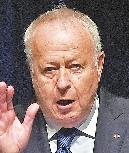
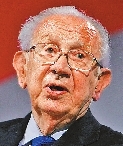
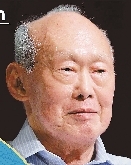
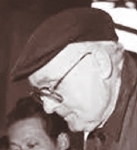

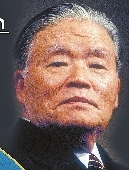
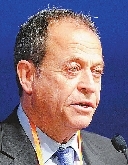
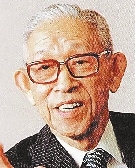
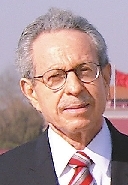
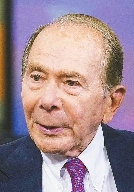
TEN foreign experts, including entrepreneurs, engineers, economists, state leaders and journalists, were awarded friendship medals for their support of China’s reform and opening up at a grand conference marking the 40th anniversary of the landmark program yesterday. The 10 medal-winners are French medical entrepreneur Alain Mérieux, German engineer and economist Klaus Schwab, former Singaporean Prime Minister Lee Kuan Yew, former International Olympic Committee (IOC) president Juan Antonio Samaranch, German engineer and technical consultant Werner Gerich, Japanese politician Masayoshi Ohira, British businessman Stephen Perry, Konosuke Matsushita, the founder of Matsushita Electric, American Robert Laurence Kuhn and U.S. insurance magnate Maurice R. “Hank” Greenberg. About 40 years ago, Alain Mérieux knocked at China’s door when the country decided to open up. Mérieux’s family has a history of funding medical business and research. The chairman of Institut Mérieux, founded by his grandfather Marcel Mérieux in 1897, Alain Mérieux led the institute in building firm cooperation with China in fighting tuberculosis and other infectious diseases. He helped build China’s first biological lab of the top biosafety level P4 in Wuhan, Hubei Province. Lee, the first prime minister of Singapore, has a long relationship with China. He has met with five Chinese leaders and has paid 33 visits to China. China and Singapore established diplomatic relations in 1990. Lee helped deepen Singapore’s participation in China’s reform and opening up process. Samaranch, who served as the chief of the IOC from 1980 to 2001, has developed a long and profound friendship with China and blazed a trail for China’s Olympic dreams. Gerich was dispatched as a consultant on assembly and quality control to a State-run motor factory in Wuhan in August 1984 and three months later he became the first foreign head of a Chinese State-owned enterprises (SOE) since the reform and opening-up. In his two years as director, the run-down factory regained its vitality and vigor via drastic reforms, with its diesel motors sought after by seven countries in Southeast Asia. Schwab, who started the Davos Forum in 1971, paid his first visit to China in 1979 and started to involve China in the annual meetings. Schwab is the founder and executive chairman of the World Economic Forum, which is behind the Davos meetings. Ohira helped restoring diplomatic relations between Japan and China in the early 1970s. During Ohira’s service as Japanese prime minister in 1979, Japan started its ODA (official development assistance) to China. It was the first intergovernmental loan China accepted after reform and opening up started. The long-term loans with low-interest rates were a vital source of foreign exchange for China, which was then facing fund shortages during its economic development. Perry, chairman of 48 Group Club, is one of the select groups of people who played a significant role in breaking the ice in the trade relations between Britain and China, and a lifetime contributor to bridging ties between China and the Western world. Matsushita set up a picture tube factory in Beijing, which produced the core component of color TVs, offered the Chinese people a new window to a colorful world. He persuaded other Japanese electronics tycoons to follow suit and make investments on the then immature land. Today, China is Panasonic’s global manufacturing hub. The joint venture in Beijing was a cornerstone of its subsequent strategy and led to the establishment of 79 factories in China employing nearly 60,000 people. Robert Laurence Kuhn, born in New York, has worked with China’s senior leaders and advised the Chinese Government on international policy and business matters since 1989. Also, as a public intellectual, international corporate strategist and investment banker, he has dedicated part of his career to telling the world what’s going on in China. Kuhn has written more than 25 books related to fields including economy, business and finance. He’s also co-produced and hosted China Global Television Network’s (CGTN) news programs. Greenberg is certainly a magnate not only in insurance business, but also in China-U.S. relations. Greenberg joined Starr as vice president in 1960, consolidated a number of insurers into the company and formed the franchise into American International Group (AIG), which later became the largest insurance and financial services company in the world. In 1992, his company became the first foreign company to receive a wholly owned life insurance license in China, helping open up the country’s financial services industry to the United States. (CGTN) | 
